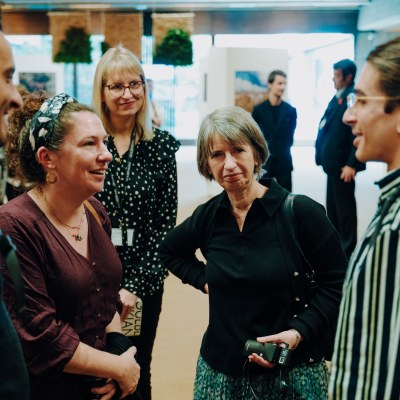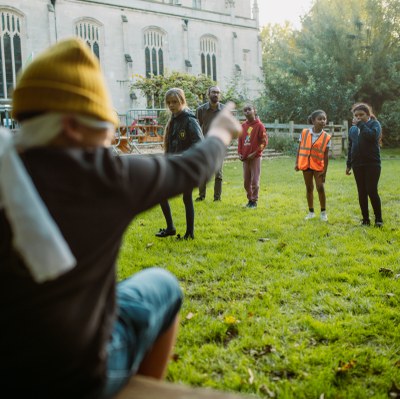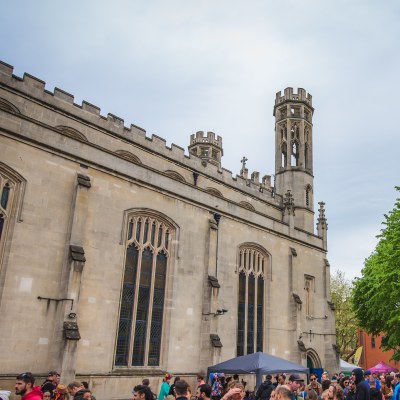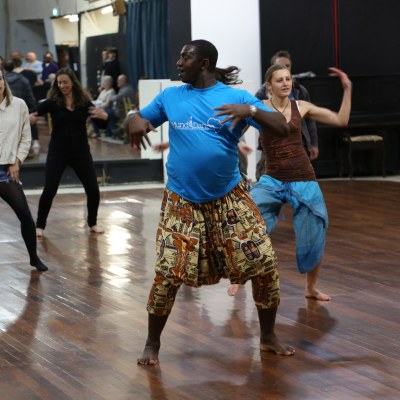Opinion: Why The Working-Classes Don’t Matter in the Arts
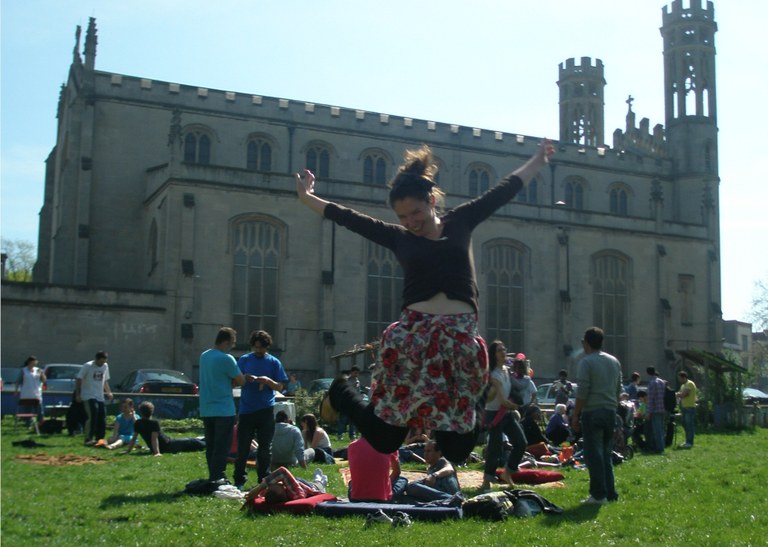
Me, way back when
Emma Harvey, Trinity CEO, shares her opinions on the underrepresentation of people from working class backgrounds in the arts
The cultural sector in the UK falls short on various measures of diversity and, starkly, fewer than one in 10 arts workers come from working-class backgrounds.
Being one of those one in 10, I can testify that people who sound and behave like me, or who share my cultural references are a rare species, particularly in leadership roles. One key reason for this is that success in the arts is often determined by access to established networks and the ability to leverage those connections to progress ideas, secure paid work and obtain funding.
One of my first funding applications for Trinity way back when was met with a rapturous response from the funder, who said they were excited to include us in their portfolio, but they wouldn’t be giving us any actual money. It was my first lesson in a long series of lessons: for Trinity – and me – to succeed, I would have to think differently about the game I was playing.
Over my time at Trinity, we’ve had to build trust with funders, proving that we are a ‘safe pair of hands’. This isn’t easy when you’re an uncompromising Essex bird who didn’t go to finishing school and (as my friend’s daughter once remarked), "looks like a teenager and talks like a young adult." While I took this as a compliment, it’s challenging when people expect leaders to look, sound and behave in a certain way. Like some wheeler-dealer Del Boy of the Bristol arts scene, it may sound sus to some when I say it's all cushty.
One way to build that credibility is by ensuring match funding is already on the table. It’s a bit of a chicken-and-egg situation: many funders only want to join the party once it’s in full swing – few want to be the first to risk bringing the vibes. Match funding from independent funders is critical to securing larger investment, particularly capital. The journey to raise all the funds needed to deliver community arts programmes or ambitious capital plans often feels like a convoluted, muddled process that relies as much on luck, sheer hard work and stubborn persistence as it does on strategy – it’s like a form of alchemy with plenty of nos along the way.
Uncredibles have to build our reputation and networks over a considerable number of years, seeing through many political cycles where officers and leaders change, meaning you have to start the conversation all over again. This at least is slightly more straight-forward in “Bristol village”, where the arts sector is relatively static. So, if like me you have the staying power then, over time, you can build trust and a track record. To this end, we’ve been hugely helped by independent funders who have placed their faith in our grand designs. Local funders like Nisbet Trust, a family charity that has been instrumental in advancing our programmes for children and young people, as well as our bold if not daunting work to save Jacobs Wells Baths. Also national funders like Historic England, who have also supported us with repairs on both of our publicly owned buildings, helping us build the match funds needed to unlock larger grant support from Lottery and other public bodies.
Despite the wins for the city, the narrative is so often negative. Instead of celebrating that Jacobs Wells Baths as a publicly owned building has been saved from commercial disposal it’s, "How did they get given that building?". Instead of joy in the building a cultural alliance that brings arts into three primary schools, the question is, “Why are they getting that funding?" And me? Well, I’m often described to my face as “a force of nature”, “someone who gets things done” and “a blunt tool”. It makes one wonder what people say when I’m not in the room. Maybe that’s why, even after all this time, I still find myself as the gatecrasher at one culture sector network event or the other.
This stuff only reinforces the purpose of Trinity’s work to democratise the arts and level our cultural worth. When we ask questions or make statements like these, what we’re really saying that the efforts of working-class people don’t matter because – whether by intent, complacency, or design – ultimately, we’re playing a game that we were never supposed to be on the board for, let alone have a chance of winning at.
That’s why people need to sit at the heart of cultural decision-making. Decisions about who gets what and where shouldn’t be made through closed-door deals by politicians, officers, cultural leaders and CEOs. Groups of people who may not live or work in the area, who don’t have real skin in the game or who like me (shock horror) will never ever ever be a real Bristolian.
Power like this should be placed with citizens.
Because when we talk about culture, what we’re really talking about who gets to express themselves freely, whose voices get heard and whose stories get told. That’s why I do what I do at Trinity. I want more voices, more diversity and more perspectives to bubble to the surface. And that means not just a room full of people who look different and all nod in agreement. I want people who challenge one other, who hold diametrically opposing views, from different faiths and conflicting political leanings. A bunch of folk who can come together and find common ground through shared values, like freedom of expression, respect and that culture, when done right, can be good for all of us – for our health, socially and economically. If we’re able to that, then we might just find a way to build a collective UK cultural identity that speaks of all of us.
So, that’s my story. Tell it, or tell someone else's. It’s up to you, not me after all.
This is an opinon piece by Emma Harvey, CEO




